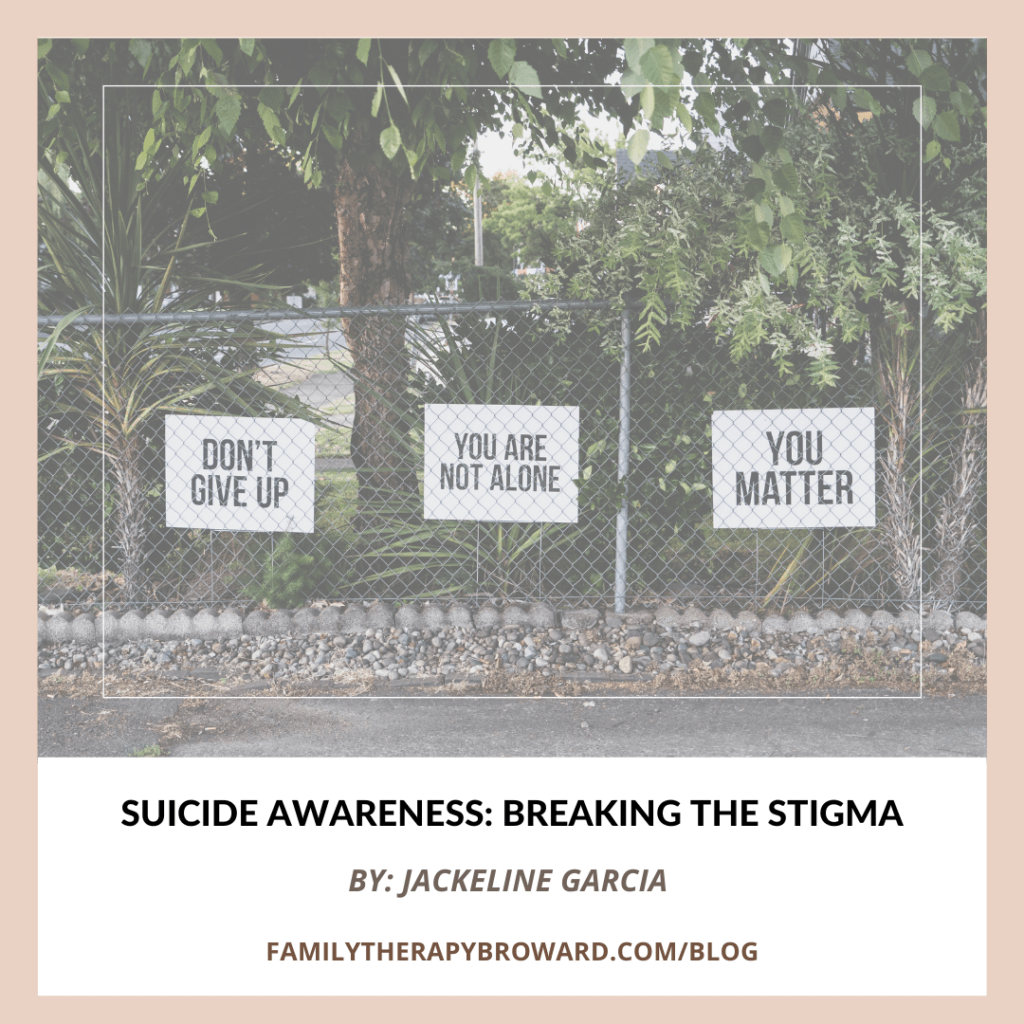
Suicide Awareness: Breaking the stigma
Written By: Jackeline Garcia
In the past three years of working with clients, they have explored the depths of their emotions in search of a glimmer of hope, healing, growth, and a chance for positive change. Suicidal thoughts and ideations can often come up when exploring these difficult and challenging emotions.
Unfortunately, our society can paint this distorted and scary picture of suicide. It becomes this permanent situation that can brand an individual forever. However, suicidal ideations do not have to be a label or a brand, it is however, a sign that an individual is deeply suffering and must seek help and support.
Stigma, misunderstanding, and lack of knowledge about mental illness and suicide can prevent many individuals from talking about it and seeking the help they need.
Here are some of the most common myths and facts about suicide:
1. Myth: Suicide can only affect those who suffer from a mental health condition.
Fact: Many individuals with a mental illness are not affected by suicidal thoughts and not all individuals who attempt or die by suicide have a mental health condition. There can be other life stressors such as the death of a loved one, trauma, relationship problems, rejection, and recent or impending crises that can also be associated with suicidal thoughts and attempts.
2. Myth: Talking about suicide will lead to and encourage suicide.
Fact: There continues to be a widespread stigma associated with suicide and this can result in making people afraid to speak about it. Talking about suicide not only can reduce this stigma but can allow individuals to seek help, rethink their opinions, and share their stories with others. Being aware of these common myths can allow others to look at suicide from a different perspective, one that can bring understanding and compassion to someone who is internally struggling.
Helpful tips for discussing suicide:
- Before talking with someone you may be concerned about have a suicide crisis resource available i.e, National Suicide Hotline 1-800-273-Talk (1-800-273-8255) or 988.
- Connect with people you trust. If you are struggling, it’s okay to share your feelings with someone with whom you trust. Reach out, contact a loved one, and begin to express your feelings you are not in this alone.
- Validate the person’s experience by providing a safe space for the individual. Talk openly, don’t panic, be willing to listen and allow for emotional expression, don’t pass judgment, and don’t leave the person alone.
- Get help by seeking professional help when you are ready. If you feel the situation is critical or are concerned about your own safety, go to your nearest emergency room, or call 911.
Remember you do not have to go through this alone.
Written by Jackeline Garcia

From Jackeline's bio...
“Her passion is in helping teens and individuals who are struggling with anxiety, depression, anger, grief and LGBTQA+ issues. Jackeline has extensive experience in working with both inpatient and outpatient Substance Abuse treatment Centers. She has been able to help countless individuals in their journey towards recovery. Jackeline understands the role that unresolved trauma and unprocessed emotions can have in an individual’s life.”






